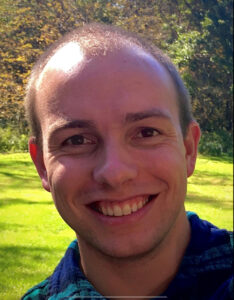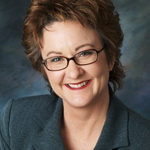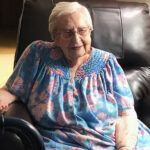Last weekend I was visiting with a friend, Matthew, about the Synod on Synodality. I was sharing that the Synod has been an opportunity for Catholics to engage in dialogue, discernment and to grow in self-awareness about the many challenges that we face and how the Holy Spirit is calling us today.

Matthew, who is nearing the end of his doctoral studies in theology, is Catholic, but he grew up in an evangelical faith community disconnected from a larger denominational tradition. He shared something about his experience that stopped me in my tracks.
In the nondenominational, evangelical setting he grew up in, every member of the congregation knew that their community depended on them to make it work. Without their proactive and creative participation, the community would cease to exist.
His adult experience of Catholic parish life has been very different. It seems to him that most Catholics assume the Church is something like a sociological fact that, as it moves through time, will endure independent of one’s personal involvement. The contrast was jarring to me.
While this is not the case everywhere or for everyone, Matthew’s observation about parish life is applicable to many settings.
Very often, a segment of a parish community is heavily involved and keeps the community running. This is not to point fingers at those who aren’t involved; various life circumstances legitimately hinder involvement in the community. Different seasons of life allow different kinds of involvement. At the same time, we would benefit from asking questions about what is and should be “normal” in Catholic parishes.
The status quo, the current “normal,” isn’t working. We know this. Young adults are leaving the Church at rates never seen in Christian history. We must face this generational reality and respond to the shift that results from it. We can learn from our evangelical brothers and sisters here.
Fundamental to any community is the desire to belong and contribute, to know others and to be known by others. The level of commitment required to build and maintain a Church from the ground up, as required in nondenominational settings, is a commitment we have in our Catholic roots, even if it is less common in recent decades. This commitment reflects a desire to give ourselves over to something larger than ourselves. With Jesus at the center, our parish communities are something we can invite people to be a part of that is bigger than themselves.
The Synod shows us that we are all part of something bigger than ourselves. If we have slipped into a kind of passivity, the Synod can function as a prompt and a mirror. It functions as a prompt because it gives us a reason to engage in a new way. It gives us an “excuse” to have conversations we might not otherwise have. We benefit from this by experiencing the gift of receiving another with humility. We also benefit from this by hearing the stories of others and becoming more aware of the communities, values and experiences at play in our culture — both local and broader.
That experience helps the Synod function as a mirror. Having become more aware of the current cultural, social and religious landscape, we can discover the ways in which the Church might better measure up to meet the challenges of this moment in time.
The Synod themes — communion, participation and mission — call us to get out of whatever ruts we are stuck in and to discern new paths forward. The Holy Spirit is living and dynamic and the faith life the Spirit is calling us to will be living and dynamic as well.
In the end, Matthew was excited by the Synod. He thought it could engender greater engagement in the faith community for Catholics, responding to the call of the Holy Spirit as we face the unique challenges of our time.
(Patrick Schmadeke is Director of Evangelization for the Diocese of Davenport.)











